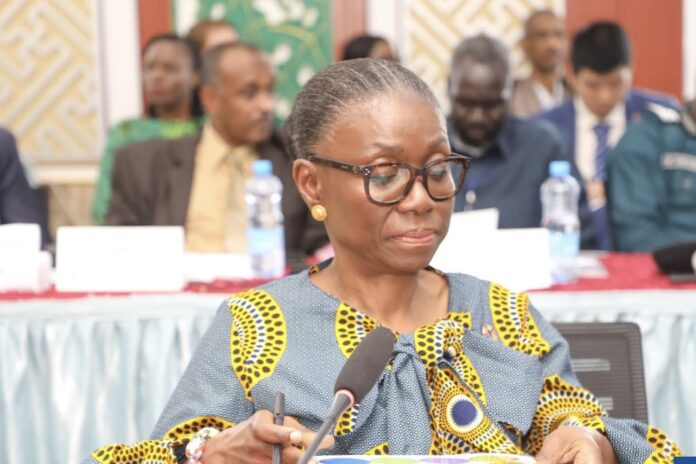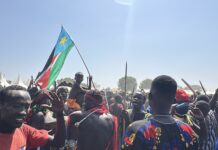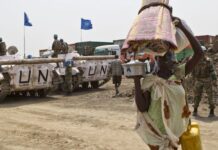
The United Nations has issued a stark warning over the deteriorating political and security situation in South Sudan, calling for immediate action to prevent further conflict and humanitarian catastrophe.
Speaking at the 4th Extraordinary Plenary of the Reconstituted Joint Monitoring and Evaluation Commission (R-JMEC), Anita Kiki Gbeho, the Officer in Charge and Deputy Special Representative of the UN Secretary-General, emphasized the urgent need for renewed commitment to the Revitalized Agreement on the Resolution of the Conflict in the Republic of South Sudan (R-ARCSS).
“This forum’s resumption is critical,” Gbeho said, “to restore focus on the peace agreement and the broader political transition. The stakes could not be higher.”
She noted that warnings made during the last regular plenary in February—particularly regarding delays in implementing security arrangements—had unfortunately come to pass, with consequences now visible across the country.
“The transitional governance and security framework under the Revitalized Agreement is severely fractured,” she stated. “Unilateral actions, selective implementation, and partial adherence are eroding the integrity of the peace process.”
Between January and September 2025, the UN recorded a 59% increase in civilian casualties from conflict-related violence compared to the same period in 2024. Insecurity, aerial bombardments, and clashes between parties to the R-ARCSS have intensified, further threatening regional stability.
Adding to political tensions, Gbeho expressed concern over the ongoing detention and prosecution of First Vice President Riek Machar and other senior SPLM/A-IO leaders. “The United Nations remains impartial and committed to the rule of law,” she said, urging authorities to uphold international standards of due process, fairness, and transparency in all judicial proceedings.
The political instability is worsening an already dire humanitarian situation. According to the UN, over 497,000 people have been newly displaced in 2025, including 321,000 due to conflict and 175,000 due to flooding. The crisis is further compounded by the influx of returnees and refugees fleeing violence in Sudan and neighbouring countries.
Gbeho highlighted a sharp rise in restrictions on humanitarian access. By the end of September, 70 incidents were reported—more than double the number from the same period last year. Aid workers and facilities have increasingly become targets, raising fears of a looming food and nutrition emergency if access is not restored.
“All armed actors must immediately lift restrictions and ensure the safety of humanitarian workers,” she urged.
Gbeho reiterated the UN’s firm stance that the Revitalized Peace Agreement remains the only viable path to a stable and inclusive political transition in South Sudan.
“There is no alternative,” she declared. “Any deviation from the Agreement’s provisions risks plunging the country back into conflict.”
She emphasized that the ongoing challenges are “man-made and fundamentally political,” and called for urgent, inclusive dialogue among all parties.
The UN has called on all stakeholders to respect the 2017 Cessation of Hostilities Agreement, engage in inclusive political dialogue and fully return to the R-ARCSS framework
“The time for action is now,” Gbeho concluded. “The people of South Sudan deserve peace, stability, and a government that puts their safety first. The United Nations remains steadfast in its support for South Sudan’s journey toward a peaceful and democratic future.”




